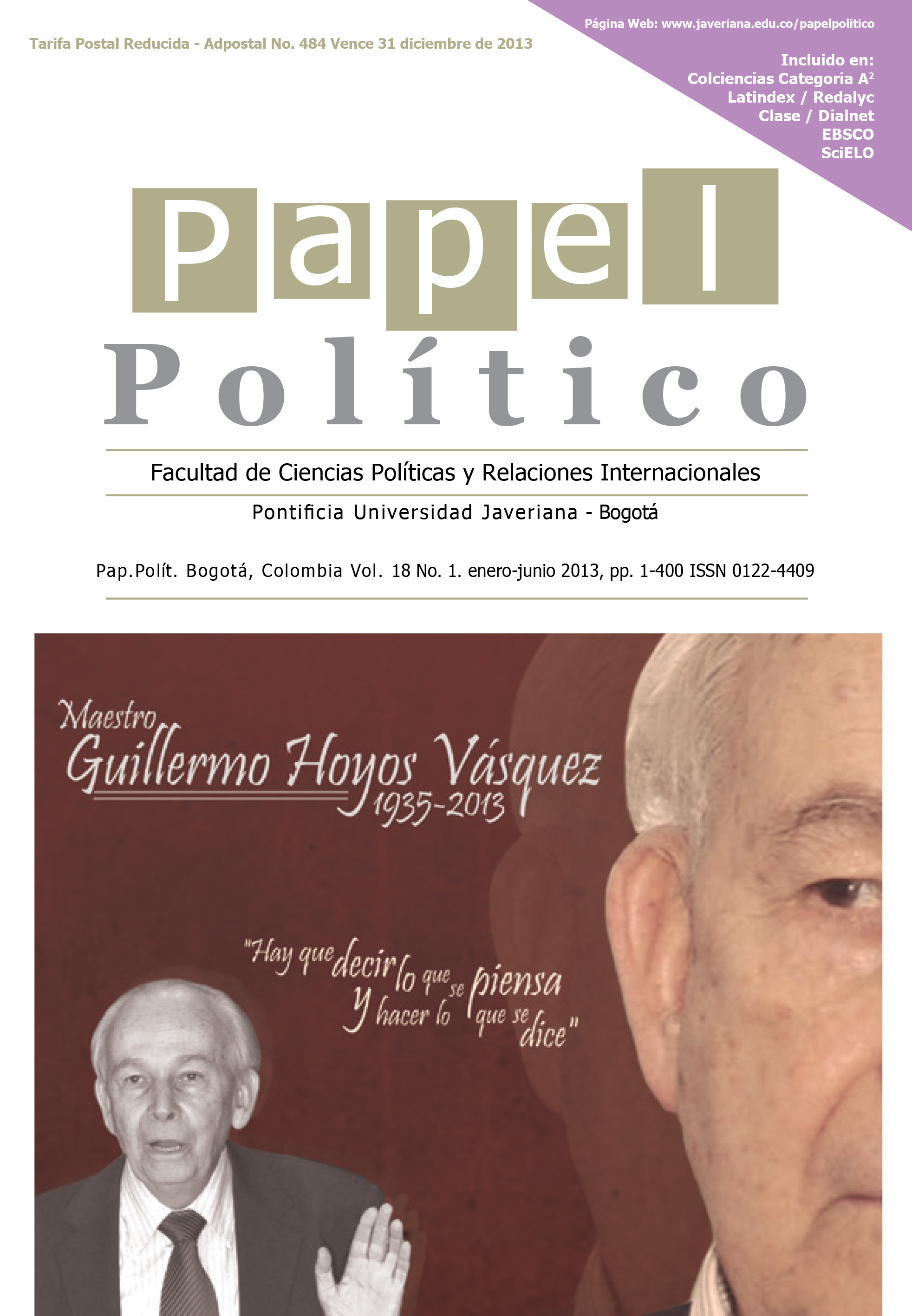Abstract
In Falls Kolumbien, die Zentralisierung der Macht durch eine Abhängigkeit der judikativen und der gesetzgebenden Gewalt von der exekutiven Gewalt kann als eine historische Konstante seit dem Beginn des nation-building-Prozesses angesehen werden. Die somit etablierten autoritären Regierungsformen (in Figur des Präsidenten) konnten bis zum Ende des 20. Jahrhunderts das Problem der Bürgerschaft nicht lösen. In diesem Sinne ist auffällig, dass das Präsidialsystem in Kolumbien immer dann eine Konsoldierung erfährt, wenn es sich im Zustand einer absoluten Krise befindet, wodurch die Rationalität der Regierungsarbeit auf immer radikalere Maßnahmen in den erwaltungspraxen zurückgreift. Die souveräne Macht verkörpert sich in diesen Phasen des republikanisches Bildes Kolumbiens in den Präsidenten Rafael Núñez und Álvaro Uribe. Ihre Diskurse und angestrengten Verwaltungspraxen stehen damit im Mittelpunkt der Politische Analyse des dieses Artikel.Esta revista científica se encuentra registrada bajo la licencia Creative Commons Reconocimiento 4.0 Internacional. Por lo tanto, esta obra se puede reproducir, distribuir y comunicar públicamente en formato digital, siempre que se reconozca el nombre de los autores y a la Pontificia Universidad Javeriana. Se permite citar, adaptar, transformar, autoarchivar, republicar y crear a partir del material, para cualquier finalidad (incluso comercial), siempre que se reconozca adecuadamente la autoría, se proporcione un enlace a la obra original y se indique si se han realizado cambios. La Pontificia Universidad Javeriana no retiene los derechos sobre las obras publicadas y los contenidos son responsabilidad exclusiva de los autores, quienes conservan sus derechos morales, intelectuales, de privacidad y publicidad.
El aval sobre la intervención de la obra (revisión, corrección de estilo, traducción, diagramación) y su posterior divulgación se otorga mediante una licencia de uso y no a través de una cesión de derechos, lo que representa que la revista y la Pontificia Universidad Javeriana se eximen de cualquier responsabilidad que se pueda derivar de una mala práctica ética por parte de los autores. En consecuencia de la protección brindada por la licencia de uso, la revista no se encuentra en la obligación de publicar retractaciones o modificar la información ya publicada, a no ser que la errata surja del proceso de gestión editorial. La publicación de contenidos en esta revista no representa regalías para los contribuyentes.


